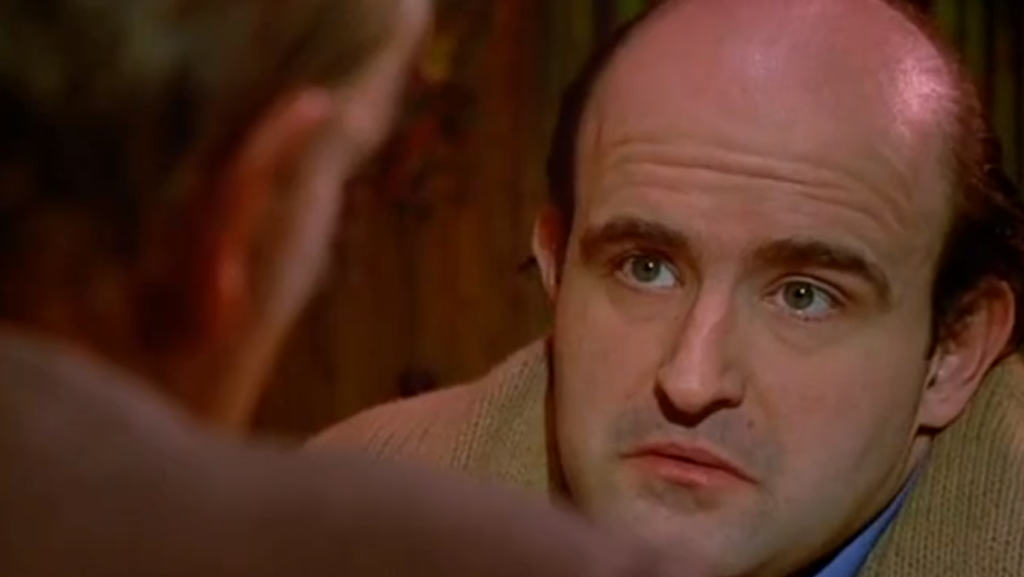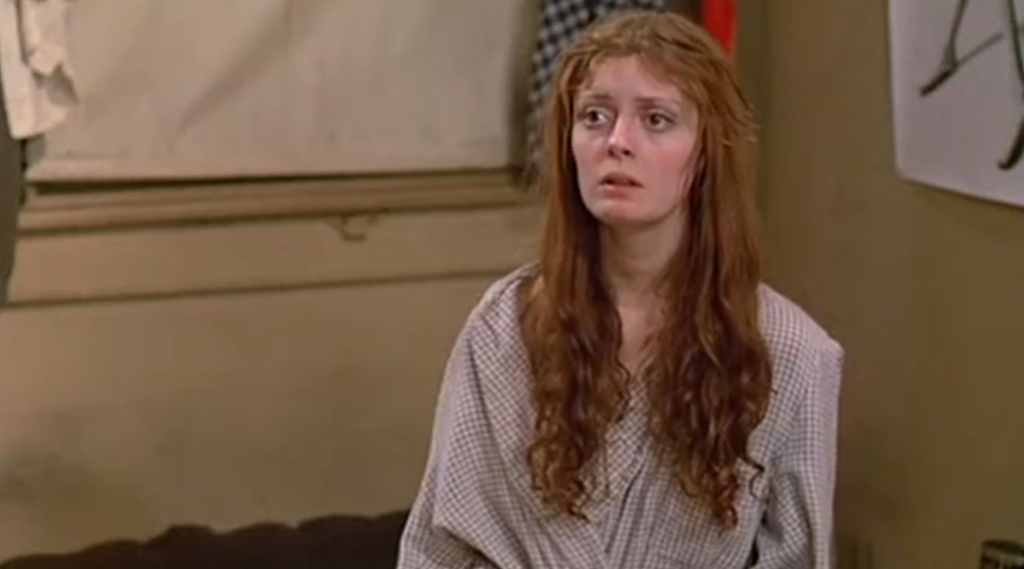|
Genres, Themes, Actors, and Directors:
- Class Relations
- Counterculture
- Generation Gap
- Peter Boyle Films
- Susan Sarandon Films
- Vigilantes
Response to Peary’s Review:
Peary’s not a big fan of this scathing cross-generational commentary, arguing that the film supports the “contention of [the] era’s conservatives that all hippie girls were nymphomaniacs, that all long-haired young people took drugs and were untrustworthy, [and] that all members of the counterculture were vermin.” What he neglects to mention, however, is that all the characters in this over-the-top film are contemptible or pathetic in one way or another. As in Shoot (1976) and The Exterminator (1980), Peter Boyle’s Joe — a “loudmouth working-class stiff who has contempt for blacks, liberals, and hippies” — is portrayed as a gun-savvy veteran who’s itching to wreak damage on the “Others” in his community, just like he did back in Vietnam. After his chance encounter with Bill in a bar, Joe becomes a “Mephistopheles”-like figure, nurturing Bill’s “baser instincts” and encouraging their unlikely cross-class friendship. This eventually leads to the film’s tragic and violent denouement, which Peary refers to as “preposterous” and “hard-to-watch”, but which I see as a logical outcome of the tension that has been building since the very beginning of the film.
Redeeming Qualities:
- Peter Boyle as Joe

- Susan Sarandon in her first screen role (she already radiates a special kind of charm and beauty)

- A powerful, if occasionally cliched, look at clashes between class, age, and culture in the 1960s
Must See?
No, but it’s recommended.
Links:
|
2 thoughts on “Joe (1970)”
Ultimately not a must.
I recall seeing this upon release (with my mom!) – it was part of a crop of very controversial flicks being unleashed in the late ’60s/early ’70s: things like ‘Midnight Cowboy’, ‘Easy Rider’, ‘Five Easy Pieces’. It’s true, though; unlike those films and others from that crop, ‘Joe’ is hardly ever talked about.
Seeing the film again, I find it a rather pointless piece of work, really. (Rather like ‘Easy Rider’ that way.) Mainly because, as stated, all of the characters are either “contemptible or pathetic”. Of course, a film doesn’t necessarily have to have a point to be a valid film experience. On the other hand, it shouldn’t be a chore to sit through – which is how I find ‘Joe’. It’s almost as nasty and repellent as last week’s Republican National Convention.
It also takes it’s good old time getting into first gear. The opening scenes with Sarandon and her boyfriend are interminable. Surprisingly, Sarandon gives a bad performance – mainly because she’s simply miscast; she’s too smart an actress for a role like that.
Oddly enough, the one who comes off best here is K Callan, as Boyle’s wife. She’s the only one who manages interesting levels. Callan’s career has been mostly in tv: she went on to play a memorable lesbian character in ‘All in the Family’ (Season 8, ep. 1) – the series which, the year after ‘Joe’ was released, gave us another (and more palatable) Joe in Archie Bunker.
This was director John G. Avildsen’s first sleeper-turned smash hit (an amazing run which included: ‘Rocky’, ‘The Karate Kid’, ‘Split-Image’, ‘Weekend at Bernie’s’). Film is interesting enough as it encapsulates the themes and ideas of the turbulent 60s (Vietnam War, black power, women’s lib etc.). And the memorable performance by Peter Boyle as Joe, one of the cinema’s first antiheroes, was sadly neglected. He’s always been good at playing creepy, bossy heavies, whose extremists’ ideas are enforced by his intimidating presence (he would play the Frankenstein monster in Mel Brook’s spoof Young Frankenstein). He reminds me of a little kid trapped in a big, dumb, awkward body.
Film has a weak script (the meeting of Joe and Bill, for instance, is a bit coincidental), but it has a particularly gruesome, post-Taxi Driver inspired ending.
Fav. QUOTE: Title Song: “I saw a fella selling junk to children. He gets nervous every time I pass. Cause he knows that if I catch him, I’m gonna kick his head and kick his fat a$$.”